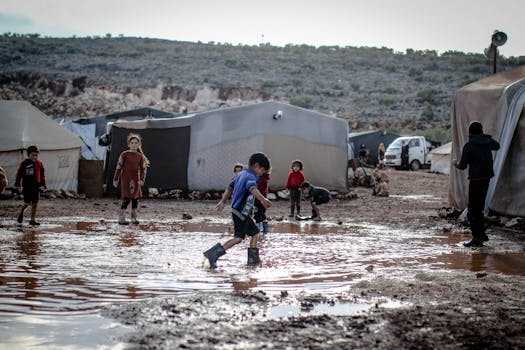
**
India's Climate Stance Hardens: A Pivotal Moment Before COP28
The global climate battle is heating up, with India taking a forceful stand ahead of the crucial COP28 summit in Dubai. The nation, a rapidly developing economic powerhouse and the world's third-largest emitter of greenhouse gases (GHGs), is pushing back against pressure from developed nations to drastically curtail its carbon emissions, arguing for a more equitable and just transition. This assertive stance is setting the stage for intense negotiations at COP28, redrawing the battle lines in the fight against climate change.
India's Demands for Climate Justice
At the heart of India's position lies a demand for climate justice. The country argues that its historical contribution to greenhouse gas emissions is significantly lower than that of developed nations, who industrialized for centuries, relying heavily on fossil fuels and emitting vast quantities of carbon dioxide into the atmosphere. Now, India, striving to lift millions out of poverty and achieve sustainable development goals (SDGs), faces pressure to rapidly decarbonize its economy, a transition it deems financially and technologically challenging.
Key Demands from India:
- Increased Financial Assistance: India insists on substantial financial and technological support from developed nations to fund its transition to renewable energy sources and adapt to the inevitable impacts of climate change. This includes fulfilling the long-standing commitment of $100 billion annually in climate finance.
- Technology Transfer: Access to affordable and clean technologies is crucial for India's decarbonization efforts. The country is demanding the swift transfer of green technologies from developed nations to bridge the technological gap.
- Fair Emission Targets: India challenges the narrative pushing for uniform emission reduction targets across all countries, arguing for differentiated responsibilities based on historical emissions and current capabilities.
- Focus on Sustainable Development: India prioritizes sustainable development and poverty eradication as integral components of its climate strategy, emphasizing that climate action cannot come at the cost of economic growth and social progress.
The Role of Renewable Energy in India's Climate Strategy
While pushing back against stringent emission targets, India is actively investing in renewable energy sources. The country has witnessed a remarkable surge in solar and wind power capacity, becoming a global leader in renewable energy deployment. However, the scale of the task remains immense. India's energy mix still heavily relies on coal, which fuels a significant portion of its electricity generation.
Challenges in India's Renewable Energy Transition:
- Grid Integration: Expanding renewable energy capacity requires significant investments in grid infrastructure to ensure reliable and efficient power distribution.
- Energy Storage: The intermittent nature of solar and wind power necessitates robust energy storage solutions to address fluctuations in supply.
- Job Creation and Reskilling: The shift from fossil fuels to renewables requires reskilling and job creation to support a just transition for workers in the coal industry.
The Global Implications of India's Stance
India's forceful stance is shaping the broader narrative at COP28. Its demands for climate justice are resonating with other developing nations, who share similar concerns about equitable burden-sharing and the need for financial and technological assistance. The negotiations are likely to be complex and challenging, with developed and developing countries locked in a tug-of-war over emission reduction targets, climate finance commitments, and technological transfer.
Potential Outcomes of COP28:
- Compromise on Emission Reduction Targets: A compromise might emerge with differentiated targets, reflecting the diverse capabilities of nations.
- Increased Climate Finance: Developed countries could pledge greater financial support to developing nations, but the details and mechanisms of delivery remain a critical issue.
- Enhanced Technology Transfer Mechanisms: Progress may be made in facilitating the transfer of clean technologies, but challenges relating to intellectual property rights and cost remain.
Navigating the Path Forward: A Call for Global Collaboration
The climate crisis demands a collaborative approach, requiring global cooperation to mitigate its impacts. While India's strong stance reflects legitimate concerns about equitable burden-sharing, the urgency of addressing climate change necessitates a global commitment to reduce GHG emissions. Finding a balance between sustainable development, economic growth, and climate action is critical. COP28 will be a crucial test of the international community's ability to bridge the divides and forge a path toward a sustainable future. The success of the summit will depend on the ability of nations to engage in constructive dialogue and reach compromises that address the concerns of both developed and developing countries, while prioritizing the planet’s well-being. The discussions surrounding climate mitigation, adaptation, and finance will be crucial in determining the effectiveness of the summit and its long-term impact on global climate action. The coming weeks will be pivotal in shaping the future of global climate policy and determining the extent to which the world can effectively combat climate change. The world watches as India's assertive position sets the stage for a potentially transformative, yet undeniably challenging, COP28.




















